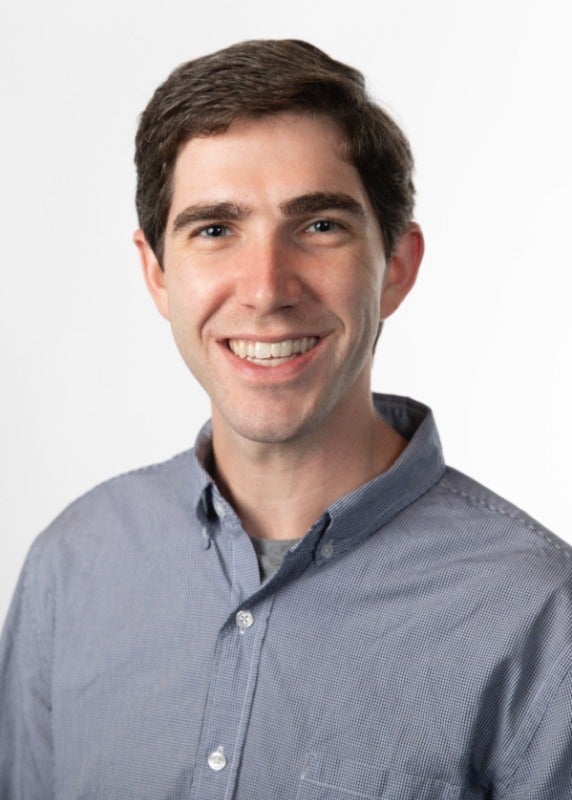Evan Richardson — Helping Students Discern and Thrive
November 16, 2022

When asked what he would like people to know about him, Evan Richardson does not hesitate to answer. “I am the uncle of two amazing nieces! I see life differently because of them. They have changed the way I make decisions and have given my decisions new meaning."
Understanding the meaningful facets of decision-making is at the core of his new role in the College of Bible and Ministry: recruiting for both the Hazelip School of Theology and the Lanier Center for Archaeology.
“We are thrilled to have Evan join us,” says the director of HST, Frank Guertin. “He is attentive to the unique callings people have in the Kingdom and serves as a careful listener in the discernment process.
Richardson graduated from Hazelip’s first MDiv cohort in 2017 then served as a youth minister at 4th Avenue Church of Christ, “so coming back to Hazelip was not an expected decision, but a very welcomed one,” he says.
“For me, the biggest selling point of this job is that I get to see what God is doing in the lives of people and discern alongside them what that next step toward God will look like. I get to meet God in new ways through people. Another selling point,” he adds, “is knowing that Lipscomb wants to be good stewards of church work, theology and God’s mission.”
“So many times we’ll hear a student say ‘I want to further my relationship with God.’ Grad school can often be the opposite of that – a disorienting experience without a resolution. But Lipscomb is trying to do something else. We’re here to enhance that relationship with God, not diminish it. I’m hearing from students that we have a reputation of supporting and investing in the soil they are already growing in,” he says.
Richardson notes that “the HST and LCA explore different worlds of biblical engagement. And engagement with God is best done in community. If these programs are about understanding God then it must be done with others. If I want students to come here, I want to make sure we have a thriving community with all the resources they need to feel like they belong.”
Three major resources Richardson points to are crisis support and financial assistance (“we need to be ready to care for our people,” he says), and connection to the wider CBM community.
Along with his undergrad counterpart, Olivia Jaques, Richardson planned a vocational discernment dinner for CBM students at the end of October where they invited people from different ministry backgrounds to speak about their experiences. “Students may have come into our program with one vision for their ministry, but we want to remind them that God is bigger than the vision we have for our own lives. We want to recognize that by hearing it from our own community and learning how they have navigated that discernment for themselves. We hope this dinner [gave] students the opportunity to be reoriented either in the same direction or a new one. And I hope it also helps to create different forms of community as we are all in this work together.”
Bible and Ministry Blog